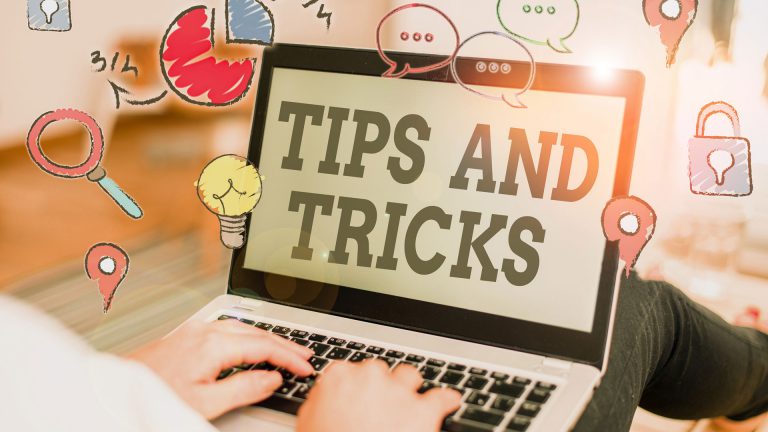The Echo Chamber Phenomena
How do people end up in a place where they are regularly parroting what other people say, coming under the influence of people who would normally be complete strangers, and even change much of their world views? And for this, we aren’t simply pointing to extreme views (though we certainly can); we can see this across any sphere where people can get together to share information and views. And over time, you may notice that the majority of what you see, read, and discuss will reinforce your beliefs rather than challenge them. This can be very nice; after all, most people don’t really like to be challenges in their views (especially closely held ones). But it can also lead to problems with critical thinking and make people more susceptible to more extreme viewpoints. What is happening here?
The phenomena is called an ‘echo chamber’. The term originally comes out of the field of physics, referring to a physical space where sounds can be reflected back and forth, thus creating an echo that continues on for a long period of time. The echo chamber idea has made its way into understanding how humans think, particularly in the area of social media. Echo chambers cause people to be exposed only to information that will align with their existing beliefs, values, and attitudes. The echo chamber then creates a feedback loop where this same information is reinforced and repeated without any challenges.
Echo chambers are created by a couple of things:
1. Most people don’t go looking for opposing views and the more opposing the view, the more they will generally avoid it unless they have to confront it. People on social media tend to clump within their own interest groups and people who already share their values. These groups become more isolated from other groups and thus reinforce existing beliefs. We do this in the real world too; for example, if you love to read romance and hate reading horror, you’re unlikely to join a book club for horror readers. Your romance book club is going to reinforce your love for the genre and make it more unlikely that you’re going to read horror because you don’t have the time, social network, or preference for it. Social media simply make sit easier to clump people from all over the world, all different time zones, and all different interests. Social media also makes it a lot easier to curate the information you want to get by letting you choose which sources to follow and block the ones you don’t.
2. Algorithmic filtering. Social media takes the concept of echo chambers and elevates it through the use of its algorithms. Algorithms are data and rules which decide how the platform will work. They determine how the content you see is selected, sorted, filtered, and recommended, based on the actions of users. Algorithms influence what we see on social media and it’s done largely automatically based on your past engagements. For example, if you leave comments or reactions on posts or watch videos, the algorithm will give you more content that that is similar to the content you have already engaged with. Over time, you create your own echo chamber made up of the things you had engagement with and the things you don’t engage with will drop off, out of sight from you. Thus, since most people don’t actively engage with things they don’t like for long, you will slowly lose any opposing views to your own.
We do this without really thinking about it and, much like a funnel trap, you don’t realize you’re in it until it becomes difficult to get back out again. Echo chambers can create a lot of problems for people: they create a distorted view of the world, they make people more susceptible to false information, they can increase polarization and it’s harder to practice critical thinking when you don’t get the chance to use it since everything you see simply reinforces what you already believe.
Are echo chambers necessarily a bad thing? Of course not; we don’t want to constantly have our beliefs and values come under attack. It’s exhausting and some things likely aren’t worth the fight. But it is important to be aware of the fact that you are likely living in one for at least some aspects of your life: hobbies, religious views, political stance, consumer habits, money beliefs, etc. And while some of these are probably harmless (choosing to read romance over horror really isn’t going to hurt anyone), others can be quite harmful to you, your family, your friends, or your wider social circle.
How can you get out of echo chambers? There are a couple of fairly easy things you can do; honestly, the hardest part is identifying that you’re in one and seeing what impact it may be having on you.
1. Engage with others! Interact with people from diverse backgrounds and beliefs and do it in an open-minded manner rather than attacking them. This can help challenge your own views and develop a more nuanced opinion on topics.
2. Seek out information from multiple sources. Follow reputable sources from all over the world, not just the usual ones from your corner of the world. It’s amazing how two different news site from different parts of the world can cover the same event in different ways. Consider these three headlines covering the suspension of a reporter for example:
ABC News suspends Terry Moran after Trump administration condemns ‘hater’ post
(CNN, American)
ABC’s Terry Moran is suspended following his social media post calling Trump and Miller haters
(Winnipeg Free Press, Canadian)
ABC suspends reporter who interviewed Trump after devastating analysis of president – and Stephen Miller
(Independent, UK)
All three stories follow the suspension of a reporter, but notice how the language differs between them, emphasis on certain things changes, and the overall tone differs between the different news outlets and countries. CNN and Winnipeg Press names the reporter; the Independent does not. The CNN headline puts emphasis on the word hater and Trump Administration whereas Winnipeg Press downplays it by calling it a social media post and the Independent says it was a devastating analysis of the president and not a hater post at all which caused the reporter to be suspended. By reading all three, you can get a more well-rounded view of how the different reporters feel about what happened and how the American administration and news outlets think of it.
There’s nothing particularly wrong with curating your social media to make sure that the things you are seeing are things you want to see. But at the same time, it’s important to be aware of the echo chamber phenomena and be willing to look beyond your own curated headlines to other sources to get a more well-rounded view of events in the world. This lets you practice more critical thinking and improve your media literacy. It will also be easier to avoid being taken in by extreme views.
Keep that mind open and ready to learn!


